Are you considering a utility service contract but unsure where to start? Crafting a well-structured proposal can make all the difference in securing the service you need. In this article, we'll walk you through a helpful letter template that highlights key elements and ensures you cover all bases. So, let's dive in and explore how you can create a compelling proposal that stands out!
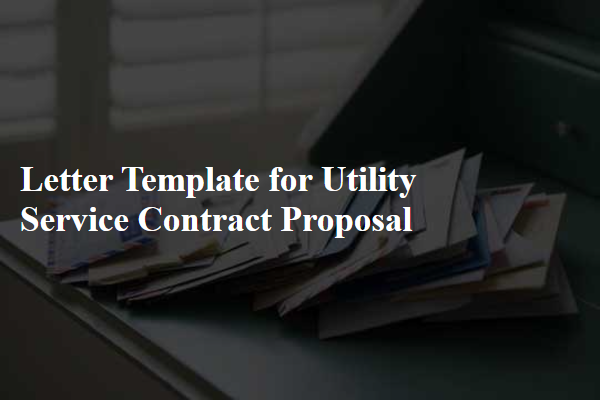
Clear statement of intent and purpose
A utility service contract proposal outlines the framework for the provision of essential services such as electricity, water, or gas to a specific location, ensuring reliability and efficiency. This proposal details the intent to establish a mutually beneficial agreement between the service provider and the client, typically covering aspects such as service rates, duration of the contract (often spanning several years), and performance metrics to assess service quality. The purpose encompasses ensuring continuous service delivery, adhering to regulatory standards, and addressing customer needs promptly, with additional clauses reflecting contingency plans for service interruptions or emergencies, safeguarding both parties' interests.
Detailed service description and scope
A utility service contract proposal typically includes a comprehensive service description and scope, essential for outlining the expected responsibilities and deliverables. The service description should detail the aspects of utility services, such as electricity supply, water distribution, or gas provision, emphasizing technical specifications like voltage levels (e.g., 220V for residential buildings), flow rates (e.g., 50 liters per minute for water), and pressure requirements (e.g., 30 psi for gas lines). The scope of work encompasses installation procedures, maintenance schedules, and emergency response protocols, highlighting timelines (e.g., completion within 90 days), service area (e.g., a specific county or district), regulatory compliance (e.g., adherence to local PSC regulations), and customer support mechanisms (e.g., a 24/7 helpline). Clarity in these elements ensures both parties understand the expectations and enhances accountability throughout the service duration.
Terms and conditions including duration
A utility service contract proposal outlines essential terms and conditions to establish a clear agreement between the service provider and the client. Typically, the duration of the contract can range from one year to five years, depending on the specific utility type, such as electricity, water, or gas. Key provisions detail payment terms, outlining monthly billing cycles, late payment penalties, and service rates as mandated by regulatory authorities, like the Public Utilities Commission. Service reliability benchmarks may also be included, ensuring a minimum operational availability of 99.9%, reflecting industry standards. Additionally, clauses regarding early termination rights, dispute resolution methods, and service interruptions help safeguard both parties' interests. Lastly, compliance with local regulations, including environmental standards specific to the utility service, is crucial for legality and accountability.
Pricing, payment terms, and conditions
A utility service contract proposal includes pricing details that outline the cost associated with regular services such as electricity or water supply. Payment terms specify the schedule and method of payments, including deadlines such as monthly or quarterly billing cycles. Conditions may encompass clauses related to service interruptions, notice periods for cancellations, and penalties for late payments, ensuring both parties understand their responsibilities. Additional provisions could involve adjustments to pricing based on fluctuations in market rates, ensuring fair practice and transparency throughout the contract's duration.
Contact information and authorization signatures
Utility service contracts often require detailed contact information along with specific authorization signatures to ensure proper communication and legal validation. Contact information typically includes the names of both parties, their addresses, email addresses, and phone numbers, ensuring seamless correspondence throughout the contract duration. Authorization signatures, often found at the end of the contract, serve as a formal agreement between the utility provider and the client, confirming that both parties understand and accept the terms outlined. This section may also require printed names and titles where applicable, along with the date of signing, to document the timeline and uphold the contract's enforceability.

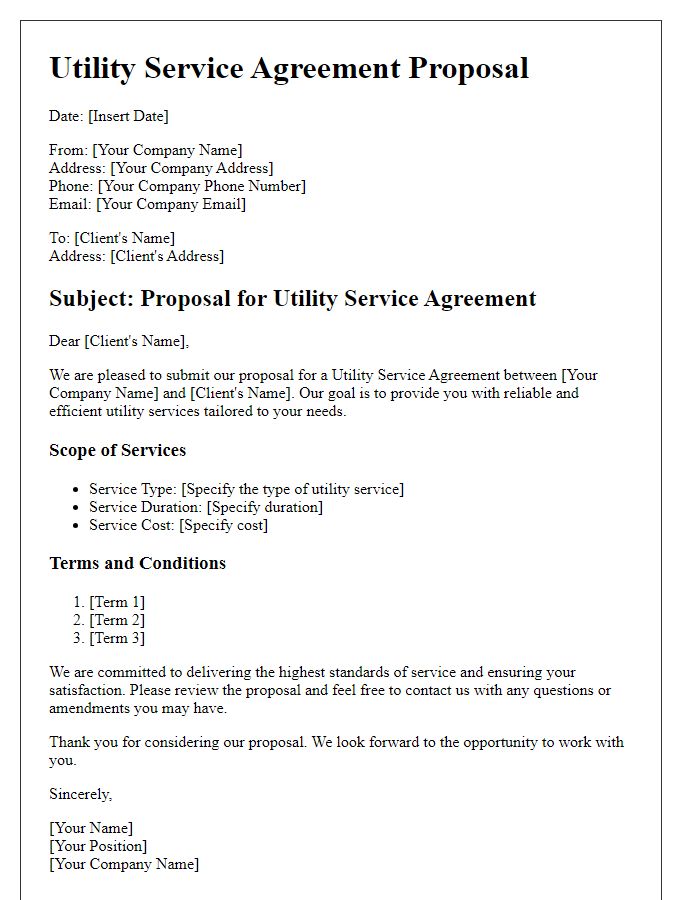

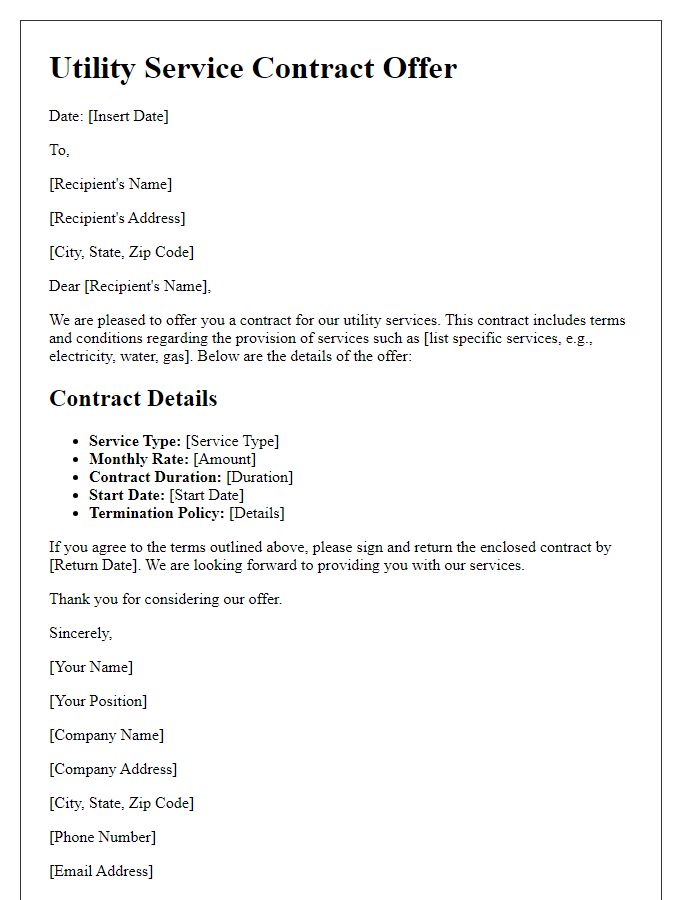
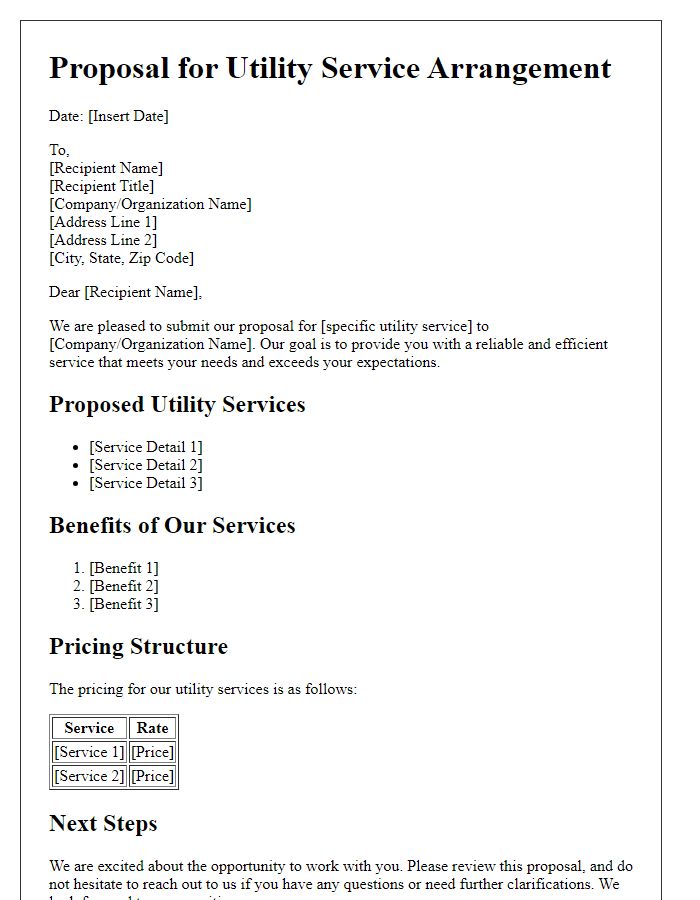
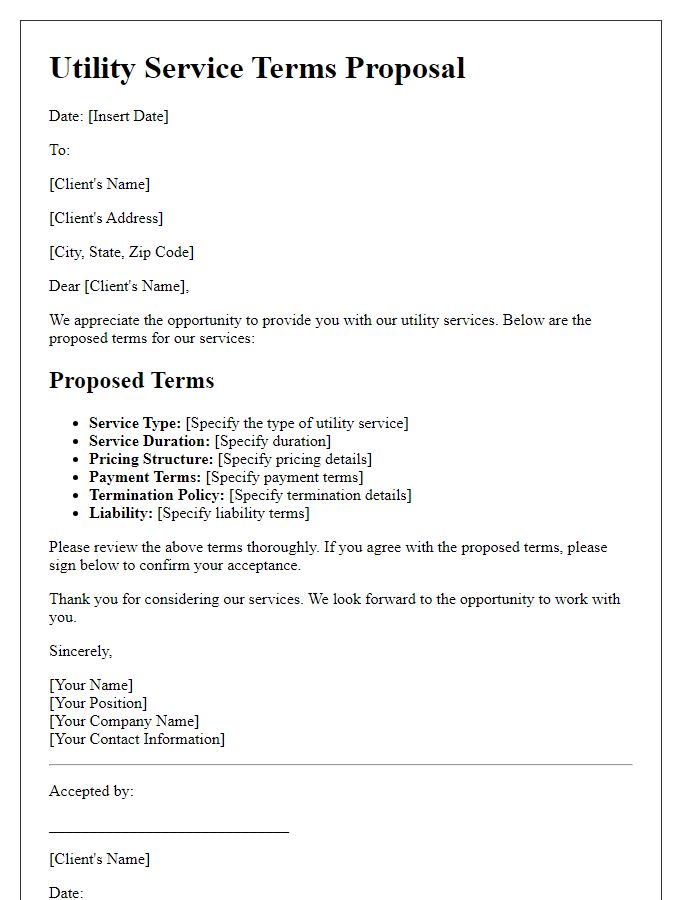
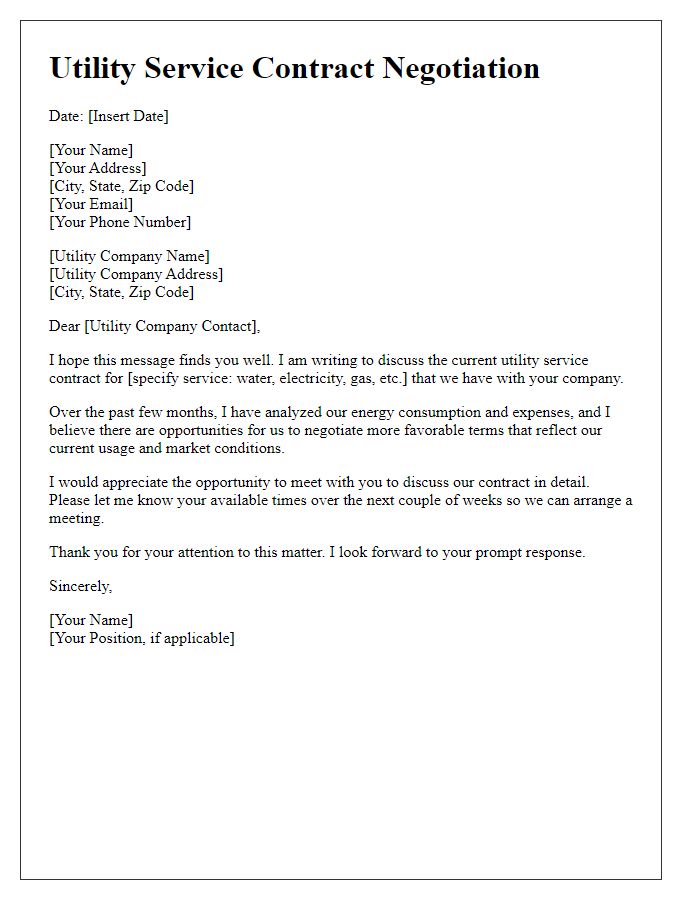
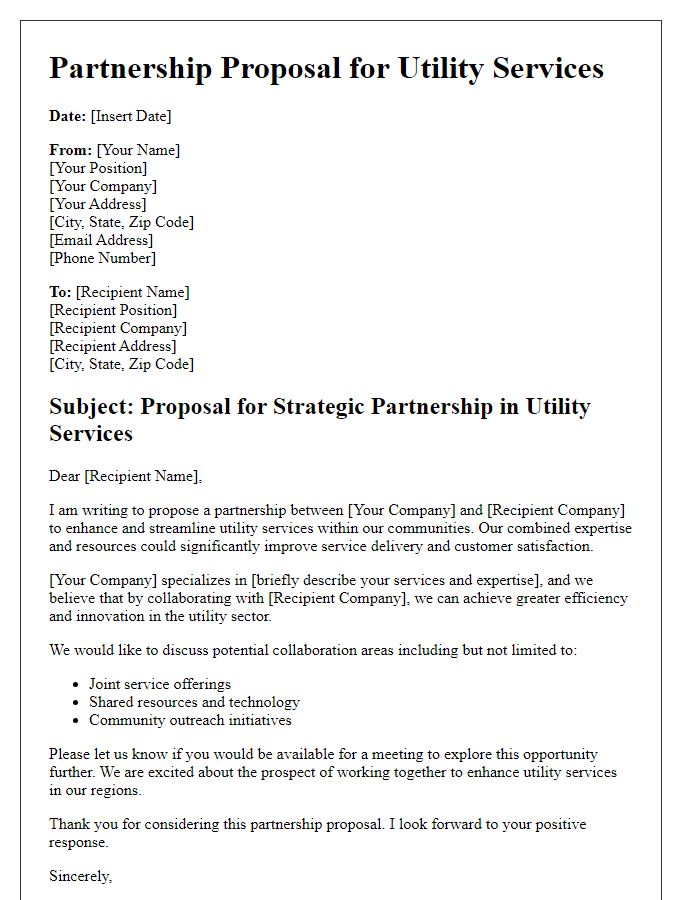
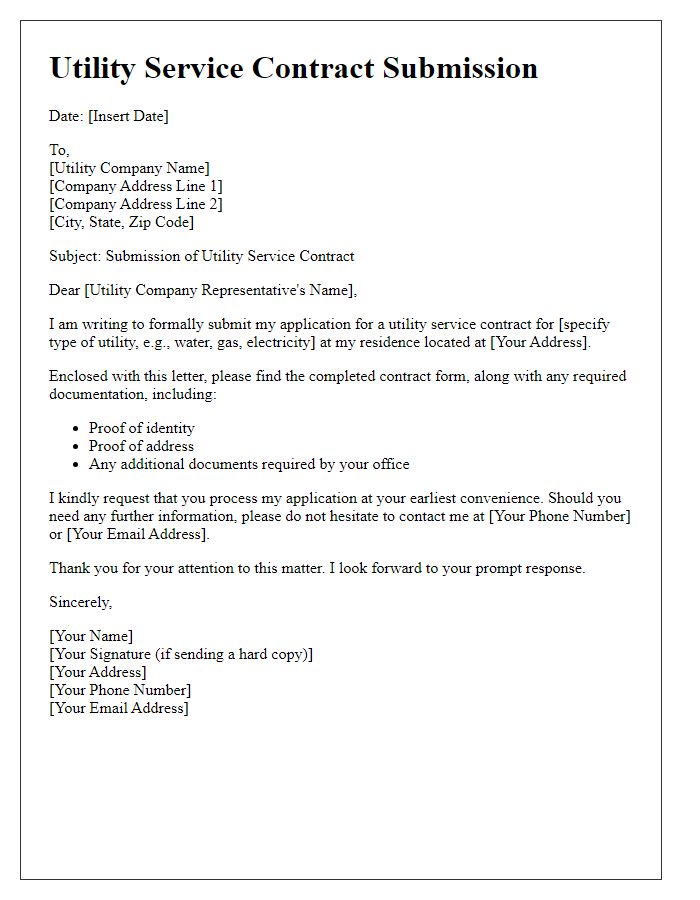
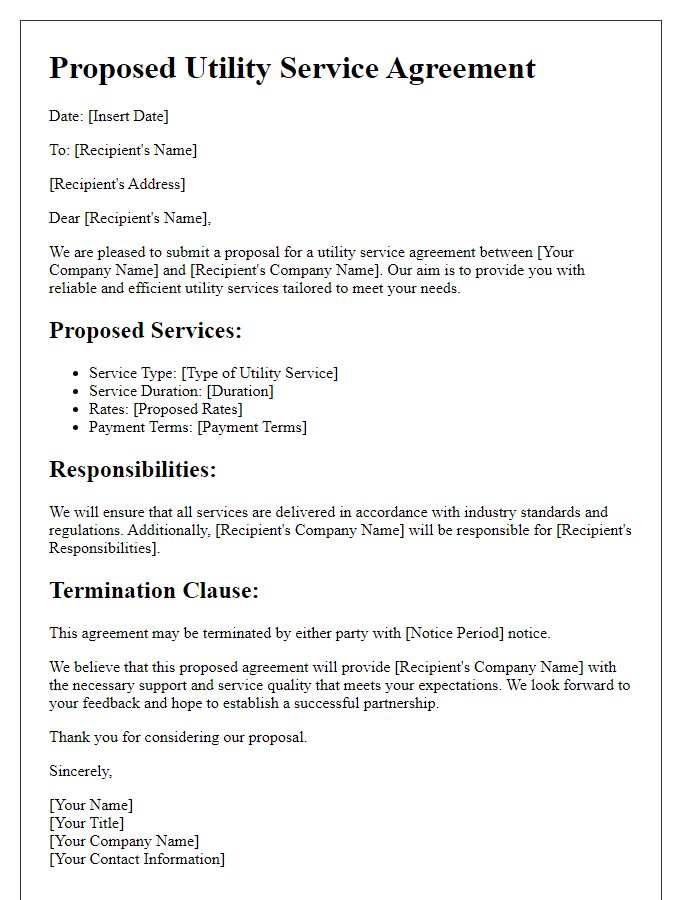
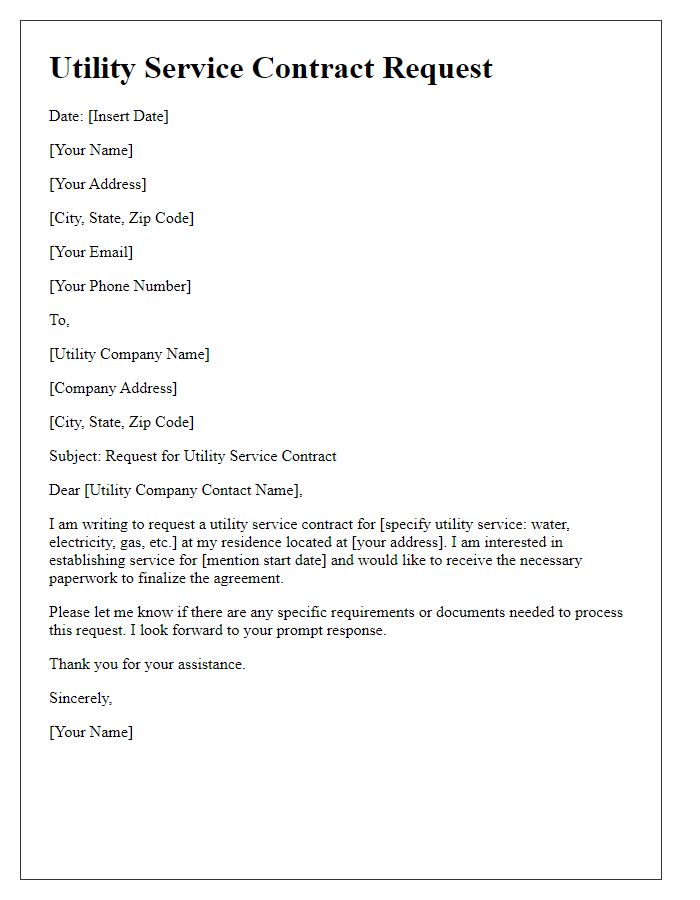

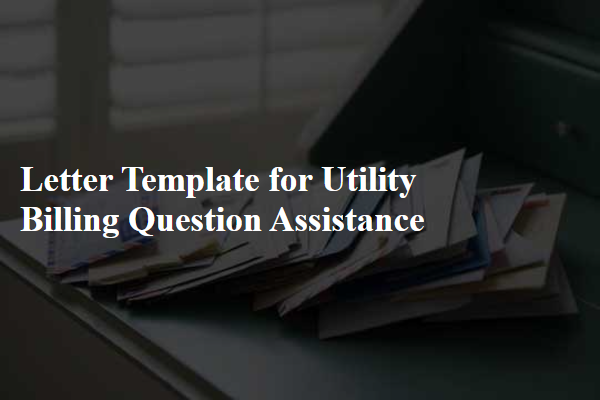
Comments